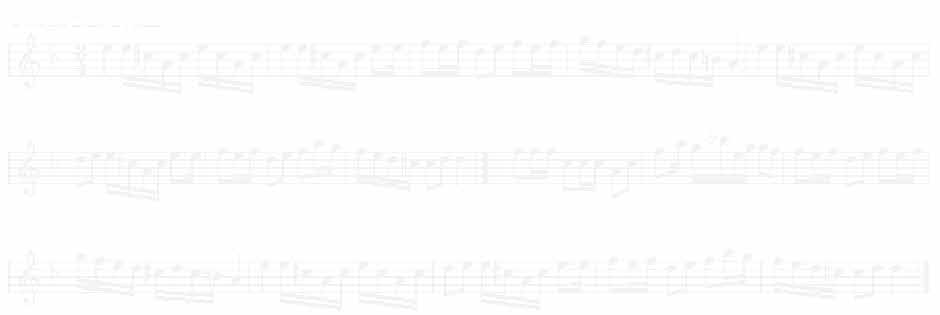Lou Trebar has authored one of the Cleveland-Style Polka's most impressive careers.
A true dean of Cleveland-Style music, Lou's credits include over sixty quality years
of professional performance beginning at age 13; over forty as a composer, arranger,
and adapter of Cleveland-Style music; leading his own orchestras from 1936-1950;
twenty-five years as the co-leader, featured accordionist, and business manager of
the Johnny Pecon-Lou Trebar Orchestra; co-owning the Metropole Cafe, Cleveland's
first significant polka establishment; six years with the Mis-Tre Orchestra led by
Joey Miskulin; leading polka tours; and teaching music.
Lou Trebar was a pioneer in adapting and assimilating Slovenian folk music into America's
musical mainstream as the first Cleveland-Style bandleader to extend instrumentation
beyond the traditional accordion and guitar. The Lou Trebar Orchestra presented multi-part
harmony arrangements featuring the trumpet, trombone, piano, saxophone, and vibes
along with a "big band" rhythm section beginning in 1936. With their ability to play
all kinds of music, the Trebar Orchestra forever set a standard of versatility for
Cleveland-Style orchestras.
During his partnership with Johnny Pecon, Lou created a unique obligato style of
accordion accompaniment that defies description. Bypassing typical "fills", Lou wove
an exhilarating combination of leading musical "escorts"; contemporaneous counterpoint-driving
rhythm; and trailing musical "afterthoughts" that added rich dimension and delightful
excitement to Cleveland-Style music.
More than any Cleveland-Style musician, Lou Trebar took the initiative and played
a leading role in developing the waltz companion to Cleveland-Style Polkas. Lou adapted
and arranged Cleveland-Style Waltzes drawing from the portfolios of Strauss, famous
American composers such as Victor Herbert and Vincent Youmans, and Dr. William J.
"Doc" Lausche, thus earning the title of "Waltz King" during the late 1930s.Lou Trebar
has authored one of the Cleveland-Style Polka's most impressive careers. A true dean
of Cleveland-Style music, Lou's credits include over sixty quality years of professional
performance beginning at age 13; over forty as a composer, arranger, and adapter
of Cleveland-Style music; leading his own orchestras from 1936-1950; twenty-five
years as the co-leader, featured accordionist, and business manager of the Johnny
Pecon-Lou Trebar Orchestra; co-owning the Metropole Cafe, Cleveland's first significant
polka establishment; six years with the Mis-Tre Orchestra led by Joey Miskulin; leading
polka tours; and teaching music.
Lou Trebar was a pioneer in adapting and assimilating Slovenian folk music into America's
musical mainstream as the first Cleveland-Style bandleader to extend instrumentation
beyond the traditional accordion and guitar. The Lou Trebar Orchestra presented multi-part
harmony arrangements featuring the trumpet, trombone, piano, saxophone, and vibes
along with a "big band" rhythm section beginning in 1936. With their ability to play
all kinds of music, the Trebar Orchestra forever set a standard of versatility for
Cleveland-Style orchestras.
During his partnership with Johnny Pecon, Lou created a unique obligato style of
accordion accompaniment that defies description. Bypassing typical "fills", Lou wove
an exhilarating combination of leading musical "escorts"; contemporaneous counterpoint-driving
rhythm; and trailing musical "afterthoughts" that added rich dimension and delightful
excitement to Cleveland-Style music.
More than any Cleveland-Style musician, Lou Trebar took the initiative and played
a leading role in developing the waltz companion to Cleveland-Style Polkas. Lou adapted
and arranged Cleveland-Style Waltzes drawing from the portfolios of Strauss, famous
American composers such as Victor Herbert and Vincent Youmans, and Dr. William J.
"Doc" Lausche, thus earning the title of "Waltz King" during the late 1930s.
As the business manager and promoter of the Pecon-Trebar Orchestra, Lou's talents
were never more evident than in conceiving the famous "Janez and Lojze" duo. After
persuading Johnny to record some "button box" tunes on Capitol, the skit became standard
fare in the orchestra's TV and personal appearances. This gem of creative genius
rekindled an interest in button boxes that grew through the 50s and 60s, and has
virtually exploded since. Among Lou's original compositions are the "Question and
Answer Polka", '"Jeffrey's Polka", "Blue Eagle Polka", "My Ann Waltz", and "Snappy
Fingers", as well as "City Hall Polka", "Number One Polka", and "Pleasant Valley
Waltz" done in collaboration with Johnny Pecon. In addition, Lou and Johnny jointly
composed, arranged, and adapted literally hundreds of famous tunes based on the work
of Doc Lausche and Matt Hoyer, commercial "pop" tunes, traditional Slovenian melodies,
and modem European composers. As the business manager and promoter of the Pecon-Trebar
Orchestra, Lou's talents were never more evident than in conceiving the famous "Janez
and Lojze" duo. After persuading Johnny to record some "button box" tunes on Capitol,
the skit became standard fare in the orchestra's TV and personal appearances. This
gem of creative genius rekindled an interest in button boxes that grew through the
50s and 60s, and has virtually exploded since. Among Lou's original compositions
are the "Question and Answer Polka", '"Jeffrey's Polka", "Blue Eagle Polka", "My
Ann Waltz", and "Snappy Fingers", as well as "City Hall Polka", "Number One Polka",
and "Pleasant Valley Waltz" done in collaboration with Johnny Pecon. In addition,
Lou and Johnny jointly composed, arranged, and adapted literally hundreds of famous
tunes based on the work of Doc Lausche and Matt Hoyer, commercial "pop" tunes, traditional
Slovenian melodies, and modem European composers.
Inducted in 1990




